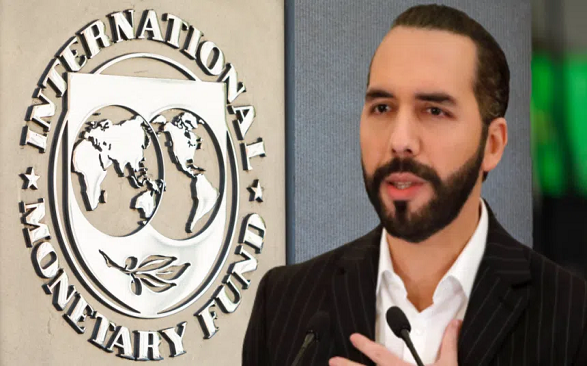by Jude Ayua
Brazilian Congressman, Mr. Eros Biondini, has introduced a bill to the National Congress proposing the establishment of the Sovereign Strategic Reserve of Bitcoins (RESBit) by the Federal Government. The Bill aims to diversify the financial assets of the National Treasury, protect international reserves against exchange rate fluctuations and geopolitical risks, foster the use of blockchain technologies in the public and private sectors, and guarantee backing for the issuance of the Brazilian digital currency (Real Digital – Drex).
RESBit’s constitution and management shall be responsible for: planned and gradual acquisition of cryptocurrencies up to 5 percent of Brazilian international reserves, management of assets, ensuring compliance with the Fiscal Responsibility Law, preventing compromise the balance of public accounts, securing storage of bitcoins through the use of technologies including cold wallets and internationally recognized mechanisms.
To promote transparency and efficiency in managing RESBit, the Bill proposes the Central Bank of Brazil and the Ministry of Finance may form inter-institutional working groups and partner with national and international organizations specializing in the crypto economy and digital security.
Inspiration from other countries
In the proposed Bill, Mr. Biondini identified countries and regions that have achieved positive results in adopting innovative strategies to integrate cryptocurrencies into national financial systems. Mr. Biondini highlighted key experiences that Brazil may learn from these countries:
- El Salvador: Became the first country to adopt bitcoin as legal tender in 2021. While it faced initial challenges, El Salvador’s initiative attracted foreign investment, diversified its economy, and fostered financial inclusion for its citizens. Mr. Biondini noted that more than 4 million Salvadoran citizens have started to use digital wallets, according to the government.
- United States: The US Securities and Exchange Commission’s approval of bitcoin spot ETFs (exchange-traded funds) demonstrated the growing acceptance of cryptocurrencies as financial assets. As Mr. Biondini observed, the ETFs have increased liquidity and confidence of institutional investors, consolidating bitcoin as a hedge asset against inflation and economic crises.
- China: Despite its initial banning of domestic use of cryptocurrencies, China has invested heavily in blockchain technology and developed its digital currency, the digital yuan, Mr. Biondini stated. China’s approach reinforced its technological leadership and modernized its financial system, he added.
- Dubai: Mr. Biondini emphasized Dubai’s position as a global hub for blockchain and digital assets by creating a favorable regulatory environment, enabling it to attract startups, global companies, and investors, and emerging as a leader in “crypto economics” and emerging technologies.
- European Union (EU): Lastly, Mr. Biondini pointed out the EU’s Markets in Crypto-Assets regulation which aims at the secure and transparent integration of cryptocurrencies, recognizing the EU’s growing role in the global financial market.
Public education initiatives
The Bill proposes the Federal Government will introduce and implement measures to promote education, technological innovation, and the protection of RESBit operations. The measures will include creating blockchain and cybersecurity training programs in educational institutions, offering specialized courses for public servants, and incentivizing blockchain startups through subsidies and tax benefits. The government will ensure continuous systems monitoring with AI, extensive wallet authentication, and maintain partnerships with international organizations to enhance security. The government will also participate in global cybersecurity forums, regularly review bitcoin management strategies, and conduct studies to assess RESBit’s impact and suggest improvements.
Economic advantages of RESBit
Brazil is among the countries with the highest adoption of cryptocurrencies in the world, ranking top ten in the Chainalysis Global Crypto Adoption Index 2024. Mr. Biondini noted, however, that Brazil’s massive crypto adoption does not reflect in the government’s strategies, which puts the country at a disadvantage on the international stage. Therefore, the establishment of RESBit is strategic in positioning Brazil at the forefront of the global digital economy, reducing economic risks and expanding opportunities for technological and financial development. Mr. Biondini argued that the approval of RESBit is essential to ensure the country’s economic sovereignty and align Brazil with global innovation trends.
The cryptocurrency market has expanded consistently. As of 6 December 2024, the global cryptocurrency market cap is $3.81 Trillion, and the market cap of bitcoin is at $1.96 Trillion, according to data from CoinGecko. While the market is highly volatile, the data indicates cryptocurrencies’ global adoption as a legitimate asset class. Countries adopting strategies for cryptocurrency’s integration into their economies can potentially benefit in the medium and long term. By proposing the RESBit Bill, Mr. Biondini hopes Brazil will take advantage of cryptocurrencies’ economic benefits.
Brazil’s incorporation of bitcoin into its national reserves will strengthen economic sovereignty and assert leadership in the digital age. Linking its CBDC to bitcoin will leverage blockchain for enhanced transaction security and transparency. RESBit’s gradual and controlled implementation will be a progressive approach to digital assets management.
The proposed integration of bitcoin shows Brazil’s commitment to economic innovation and the effective governance of emerging financial technologies. The integration could restructure Brazil’s economy, lessening reliance on traditional financial currencies and systems, lower transaction costs, and enhance cross-border transfers.
Brazil’s integration of bitcoin could also accelerate broader blockchain adoption across its economy and position Brazil among the leaders in modern fiscal strategies. It will promote innovation and potentially attract more international investments and crypto businesses fleeing less friendly jurisdictions.
Prospects for other countries
As Brazil drew inspiration from El Salvador, China, Dubai, and the EU, its initiative could pave the way for other nations to consider similar initiatives. If more countries adopt similar initiatives, the global financial system will become more interconnected and technologically advanced.
In the US, President-elect Donald Trump promised during his election campaign that his administration will integrate bitcoin into the national financial strategy with a “strategic Bitcoin reserve.” US Senator Cynthia Lummis (R-WY)’s proposed bill, the BITCOIN Act of 2024, approves Trump’s promise. The bill’s mandate for the Secretary of the Treasury is that the Secretary purchases a maximum of 200,000 bitcoins every year over a 5-year period, targeting a total acquisition of 1,000,000 bitcoins.
In Africa, countries with potential to integrate Bitcoin into their national economies include those with high crypto adoption rate, interest in financial innovation, and whose economic contexts could benefit from Bitcoin’s use as a hedge or technological integration. For example:
- Nigeria: As a country with a large economy, vibrant fintech sector, and second in global cryptocurrency adoption, showing significant interest in digital assets, Nigeria, like Brazil, could integrate bitcoin into its economy.
- South Africa: With an established financial system and proactive regulatory approaches to cryptocurrencies, South Africa is well-positioned to leverage bitcoin for cross-border payments, remittances, and diversifying reserves.
- Kenya: With its Fintech ecosystem including its mobile money solutions like M-Pesa, openness to digital financial innovations, and high cryptocurrency adoption, integrating cryptocurrencies could complement Kenya’s existing infrastructure by offering additional options for cross-border remittances and financial inclusion.
- Ghana: Ghana’s interest in CBDCs, currently piloting its digital currency (eCedi), openness to digital financial technologies, like Brazil, incorporating cryptocurrencies alongside its CBDC could enhance financial system efficiency and resilience.
These countries could benefit from adopting Brazil’s strategic approach, aligning with global innovation trends while addressing local economic challenges, modernize their financial systems and bolster economic sovereignty.
Read Also: Top 4 Safety Tips in Crypto Investment You Should Know
Jude Ayua is a policy analyst at CAB. A lawyer, Jude is an associate at Infusion Lawyers where he is a member of the Blockchain & Virtual Assets Group. He is also a member of the Policy & Regulations Committee of the Stakeholders in Blockchain Technology Association of Nigeria (SiBAN). Jude reports an
Discover more from Crypto Asset Buyer
Subscribe to get the latest posts sent to your email.





